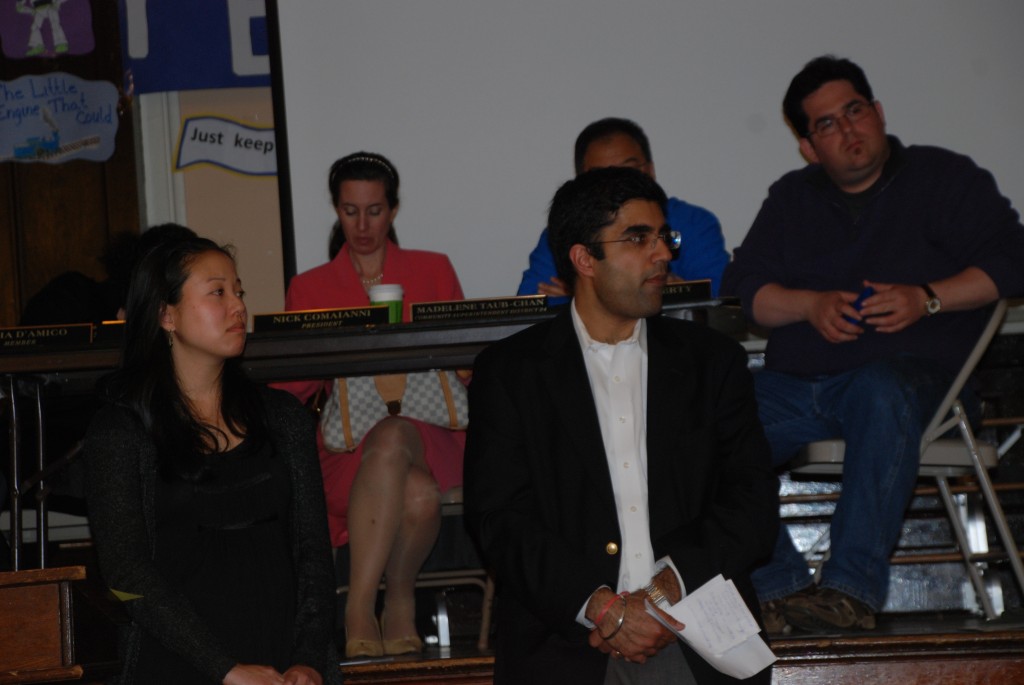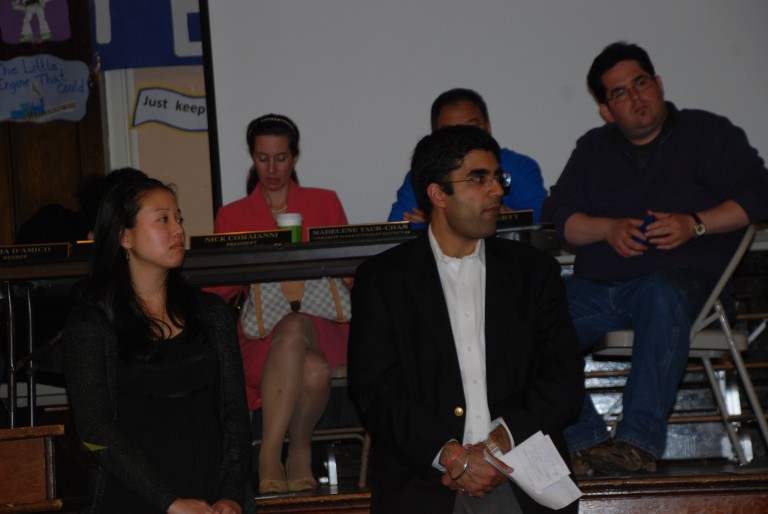 Over the past few months, representatives for the Central Queens Academy have been conducting community outreach in Public School District 24 and meeting with Community Education Council 24 about their proposed charter school, often with contentious results.
Over the past few months, representatives for the Central Queens Academy have been conducting community outreach in Public School District 24 and meeting with Community Education Council 24 about their proposed charter school, often with contentious results.
Nick Comaianni, CEC 24 president, has loudly opposed the charter. Despite opposition from the community, the school was approved on Wednesday.
The State University of New York Board of Trustees, which oversees all charter schools in New York, voted to approve the school based on the recommendations of SUNY Charter Schools Institute, which recommended 14 of 25 charter applicants for approval. The institute noted support from Chancellor Dennis Walcott’s office and opposition from CEC 24.
Suyin So, the school’s lead applicant, said after approval they can establish a site, and intensify their outreach to prospective students.
“We’re excited to start making inroads to the neighborhood, hiring teachers and a great principal and finding a good location,” she said.
Central Queens Academy will accept 100 fifth grade students for its first year in the fall of 2012, and over the next four years will expand to eight grade. Eventually, the school’s board hopes to enroll 380 students from District 24. The overcrowded school district had more than 50,000 students enrolled last year.
The charter will focus on English language learners. Last year, in District 24, 52 percent of fifth graders were proficient in English, and only 44 percent of sixth graders met their age level proficiency.
During the school’s initial public outreach efforts, So often noted that the school didn’t have a site finalized because without the charter, they couldn’t do much more than look at properties—many of which are in the Elmhurst area.
While So had assured residents and the CEC that they would not seek public school space, the Department of Education report noted the charter’s willingness to incubate in a public school, but said the district was too overcrowded.
So said that any charter school would be foolish to not say they are willing to incubate, but that the school never intended on using public property.
“Things would have to change significantly for us to be open to incubation,” she said.
For now, the charter school is looking for private property that wouldn’t be approved for a public school, such as church property.
Comaianni said he doesn’t buy it. “We plan on fighting them on any site they find, because we need the space,” he said. Adding that any space a public school couldn’t use, like a church basement, would be a disservice to the students.
Comaianni often derided the school for lacking a plan, and pointed to the lack of a site as evidence of such.
“We gave our opinion,” Comaianni said. “I didn’t feel they gave us enough information. Even in all the literature they gave us, there was nothing in there about a business plan.”
Several of the charter’s members came to last month’s CEC24 meeting, where So was prepared to again present her school and application to the council and public, but Comaianni—who had invited So to speak after a previous town hall meeting—allowed her only two minutes in the public forum, after the council’s vote.
The council’s vote was also contentious. With only six board members in attendance, the resolution to oppose the school needed a unanimous vote, but board member Brian Rafferty voted against the resolution, noting that his vote would cause the resolution to fail. According to CEC regulations, the resolution failed, and should have died at the meeting.
“I’d hate for [the resolution] to be mischaracterized as having been passed,” he said. “I think this school should have the opportunity as long as it’s not going to take away from our district space.”
Nevertheless, Comaianni submitted the vote to the SUNY Charter Schools Institute, and said the board “passed the resolution.”
Despite Comaianni’s bullish opposition, So said the school plans to work with the CEC in the future.
“We want to have a good relationship with the [CEC] and we’re dedicated to operating with as much transparency as possible,” she said.
She noted that it will serve the schools best interest to have the community behind them. “I think there’s a misperception that charters are private schools,” she said. “We’re subject to the [City Department of Education], SUNY, the State Department of Education, parents, our board members and there’s a lot of information being made public.”
Over the next year, So said the charter board plans on speaking with parents of fourth graders about the school.
“We’re excited that this is coming to fruition and we’re excited to meet our future students,” she said.
by David J. Harvey

